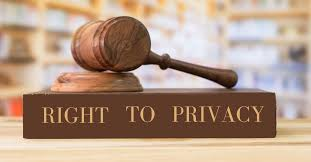Right to Privacy- K.S Puttaswamy (Prelims & Mains- Polity & Governance)
Why in news?
Justice K.S Puttaswamy, a champion of privacy who challenged Aadhar dies on 28th October.

Justice K.S Puttaswamy had initially challenged the Aadhaar identity scheme. He said its biometric registration process and linkage to public welfare and essential subsidies amounted to sheer violation of the citizens’ right to privacy.
What is Right to Privacy?
Some legal experts tend to define privacy as a human right enjoyed by every human being by virtue of his or her existence.
Privacy can also extend to other aspects, including bodily integrity, personal autonomy, informational self-determination, protection from state surveillance, dignity, confidentiality, compelled speech and freedom to dissent or move or think.
Supreme Court ruled that Right to Privacy is “intrinsic to life and personal liberty”.
Justice D.Y Chandrachud termed privacy a “natural” fundamental right inseparable from the human personality.
Privacy enjoys a robust legal framework internationally. Article 12 of the Universal Declaration of Human Rights, 1948 and Article 17 of the International Covenant on Civil and Political Rights (ICCPR), 1966, legally protect persons against “arbitrary interference” with one‟s privacy, family, home, correspondence, honour and reputation.1
Privacy and the Supreme Court
The Right to Privacy was not directly envisaged by the Constitution makers and as such does not find a mention in Part III of the Constitution relating to Fundamental Rights.
In 1954, just four years after the Constitution came into being, that the Supreme Court in the MP Sharma vs Satish Chandra case, the Supreme Court decided in favour of the practice of search and seizure when contrasted with privacy.
In 1962, while deciding the Kharak Singh vs State of UP, the Court stated that the right of privacy is not a guaranteed right under the Constitution.
In 2012, Justice K S Puttaswamy, a retired judge of the Karnataka High Court, filed a writ petition in the Supreme Court challenging the constitutional validity of the Aadhaar scheme introduced by the UPA Government.
The Court in a landmark judgement on 24 August, 2017 unanimously ruled that privacy is a fundamental right, and that the right to privacy is protected as an intrinsic part of the right to life and personal liberty (Article 21), as a part of the freedoms guaranteed by Part III of the Constitution. The Bench also ruled that the right to privacy is not absolute, but is subject to reasonable restrictions (as is every other fundamental right)


